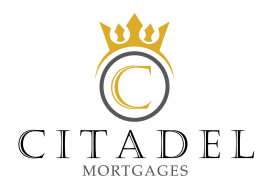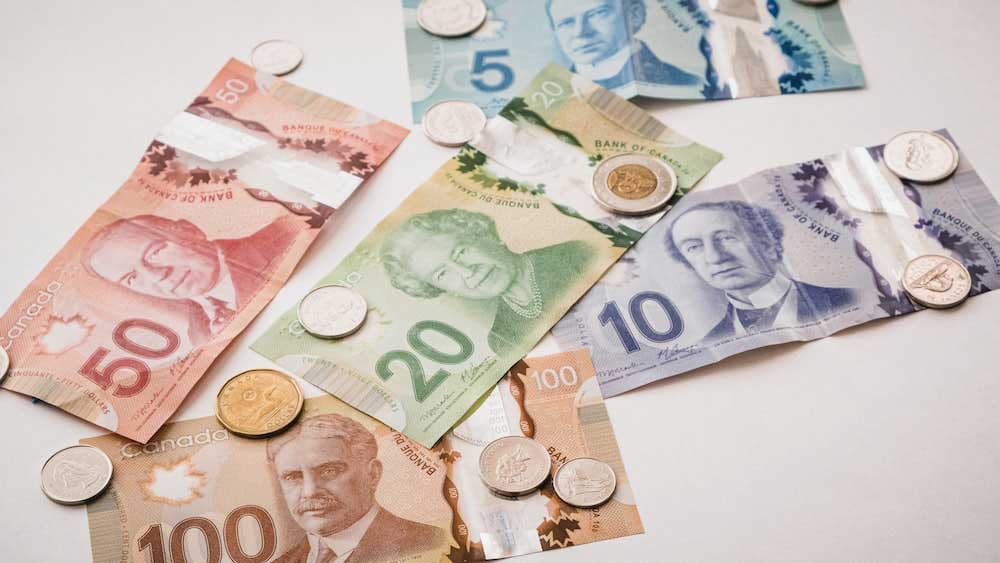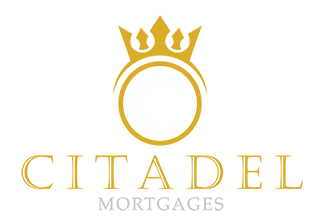Purchasing a home in Canada comes with various costs, including closing costs, moving expenses, and other unavoidable charges. To help cover these expenses, a cash-back mortgage may be worth considering. This type of mortgage provides the borrower with additional funds that can be used for various purposes. However, it’s essential to understand the ins and outs of the Canadian cash-back mortgages to determine if they are the right choice for your specific needs and financial situation.
What Is a Cash-Back Mortgage?
A cash-back mortgage is a type of mortgage where the borrower receives a lump sum of cash upon closing the mortgage. This additional cash can be used to cover closing costs, moving expenses, furniture purchases, renovations, or to supplement cash flow during the initial months of homeownership. The cash-back amount is either a fixed amount, such as $5,000, or a percentage of the purchase price, typically ranging from 1% to 7%.
How does a cash-back mortgage work in Canada?
In Canada, a cash-back mortgage works by borrowing more than what is required to purchase the home. The excess amount is provided to the borrower as a lump sum at the time of mortgage closing. For example, if you are approved for a $400,000 mortgage and arrange for a 5% cash back ($20,000), your mortgage balance would be $420,000, with $400,000 registered as the mortgage and the additional $20,000 considered a loan.
It’s important to note that cash-back mortgages often come with higher interest rates compared to standard mortgages. The higher interest rate is applied to the entire loan amount, not just the cashback received. This means that the additional interest charges can be substantial, resulting in a higher overall cost of the mortgage.
How can I get cash back on my mortgage?
To qualify for a cash-back mortgage in Canada, you need to meet the requirements set by the lender. These requirements typically include having reliable employment with a steady income, a credit score of at least 650, and the intention to occupy the home as your primary residence. Self-employed individuals may have a harder time qualifying for cash-back mortgages.
Where can I get cash-back mortgages in Canada?
Cash-back mortgages are offered by many lenders in Canada, including major banks like RBC and BMO, as well as B lenders like QuestMortgage. If you are considering a cash-back mortgage, it’s essential to shop around and compare rates and terms from different lenders to find the best option for your financial situation.
One reputable mortgage brokerage in Canada that offers cash-back mortgages is Citadel Mortgages. Citadel Mortgages provides competitive rates and personalized service to help borrowers navigate the mortgage process and find the right cash-back mortgage to meet their needs. Visit Citadel Mortgages to learn more about their cash-back mortgage options and to get started on your application.
What are the average Cash-back mortgage interest rates?
Cash-back mortgages typically have higher interest rates compared to standard mortgages. The exact interest rate will vary depending on the lender and the specific terms of the mortgage. It’s important to carefully consider the interest rate and calculate the additional interest charges over the term of the mortgage to determine the true cost of a cash-back mortgage.
Cash-back mortgage penalties
Like with most mortgages, there are penalties associated with breaking a cash-back mortgage term early or refinancing. If you break a cash-back mortgage, your lender may require you to pay back a portion or all of the cash you received as a cash-back rebate, in addition to a prepayment penalty.
The specific penalties for breaking a cash-back mortgage vary by lender. It’s crucial to ask your lender about their prepayment penalties and cash-back rebate return policies before finalizing the mortgage. Understanding these penalties can help you make an informed decision and avoid any unexpected costs or consequences in the future.
Best Mortgage Rates in Canada
When considering a cash-back mortgage or any other type of mortgage, it’s essential to compare the best mortgage rates in Canada. Shopping around and comparing rates from different lenders can help you find the most competitive rates and terms for your financial situation.
Citadel Mortgages offers the best mortgage rates that will meet your needs. Click here to explore the best mortgage rates in Canada and start your mortgage application with Citadel Mortgages.
Is a cash-back mortgage a good idea?
A cash-back mortgage can be a useful option in certain situations. It can help you finance closing costs, cover major repairs or renovations, furnish your new home, supplement cash flow during the initial months of homeownership, pay down high-interest debt or student loans, and cover the costs of moving. If you have a clear purpose for the cash you receive, it can be a valuable tool.
However, it’s important to weigh the pros and cons of cash-back mortgages before making a decision. Some advantages of cash-back mortgages include access to cash for additional homeownership expenses and the ability to pay both the mortgage and cash-back loan with the same monthly payment. On the other hand, disadvantages include higher interest rates, stricter qualification requirements, and penalties if the mortgage term is changed or broken. Lets break them down in detail.
What are the advantages of cash-back mortgages?
Cash-back mortgages offer several advantages for homebuyers. Here are some key benefits:
- Access to cash for additional homeownership expenses: The cash you receive from a cash-back mortgage can be used to cover various expenses associated with purchasing a home, such as closing costs, legal fees, land transfer taxes, renovations, or furniture purchases.
- Consolidation of payments: With a cash-back mortgage, you can have both the mortgage and cash-back loan paid with the same monthly payment. This simplifies your finances and allows you to manage your expenses more effectively.
- Wide availability and comparison shopping: Cash-back mortgages are offered by many lenders in Canada, providing borrowers with the opportunity to compare rates and terms to find the best option for their financial situation.
What are the disadvantages of cash-back mortgages?
While cash-back mortgages have their advantages, there are also some disadvantages to consider. Here are a few drawbacks:
- Higher interest rates: Cash-back mortgages typically come with higher interest rates compared to standard mortgages. The higher interest rate is applied to the entire loan amount, resulting in additional interest charges over the term of the mortgage.
- Stricter qualification requirements: Qualifying for a cash-back mortgage may be more challenging compared to a standard mortgage. Lenders often have stricter requirements, including reliable employment with a steady income and a credit score of at least 650.
- Penalties for breaking the mortgage term: If you need to refinance or break your cash-back mortgage term early, your lender may require you to pay back a portion or all of the cash you received as a cash-back rebate, in addition to a prepayment penalty. These penalties can be costly and should be considered before finalizing the mortgage.
What are the alternatives to cash-back mortgages?
If a cash-back mortgage doesn’t feel like the right fit for your financial situation, there are alternative financing options to consider. Here are a few alternatives:
- Second mortgage or home equity loan:
If you already own a home and have built up equity, you can consider taking out a second mortgage or a home equity loan. This allows you to tap into the equity in your home to access cash for various purposes. - Personal loans:
Personal loans are generally easy to find, especially if you have a strong credit score. They can provide you with the flexibility to borrow cash for specific needs, such as closing costs or furniture purchases. - Line of credit:
A line of credit can be a more flexible financing option compared to a personal loan. It offers better interest rates and allows you to access cash as needed. This can be beneficial for ongoing expenses or unexpected costs. - Borrowing from retirement savings:
In Canada, you can borrow up to $35,000 from your Registered Retirement Savings Plan (RRSP) through the Home Buyers Plan. This can help with the down payment and other closing expenses. - Credit cards:
If you have a low-interest or no-fee credit card, it can be used to cover moving costs or furniture purchases. Be sure to wait until after your mortgage closes to apply for a credit card to avoid any disruptions to the mortgage process.
When should you apply for a cash back mortgage?
A cash-back mortgage is a suitable option if you need a quick infusion of cash to cover additional homeownership expenses. Here are some scenarios where a cash-back mortgage may be beneficial:
- Financing closing costs:
If you need cash to cover closing costs such as legal fees, land transfer taxes, or appraisal fees, a cash-back mortgage can help. - Major repairs or renovations:
If the home you’re purchasing requires significant repairs or renovations, the cash from a cash-back mortgage can be used to fund these projects. - Supplementing cash flow:
If you anticipate a temporary decrease in cash flow during the initial months of homeownership, a cash-back mortgage can provide the extra funds needed to cover expenses. - Furniture purchases:
If you need to furnish your new home, a cash-back mortgage can provide the necessary cash to buy furniture and make your new house feel like home. - Paying down debt:
If you have high-interest debt or student loans, using the cash from a cash-back mortgage to pay them off can help you save on interest payments.
How do you calculate your cash-back mortgage?
To calculate the true cost of a cash-back mortgage, you need to consider the additional interest paid compared to a standard mortgage. Here’s an example of how to calculate the extra interest paid:
- Calculate the extra interest paid on the cash-back mortgage compared to a standard mortgage by subtracting the interest on the standard mortgage from the interest on the cash-back mortgage.
- Subtract the cash-back value from the extra interest paid to determine the additional interest paid on the cash-back mortgage.
It’s important to carefully analyze the numbers and compare the overall cost of a cash-back mortgage with other financing options to determine the best choice for your financial situation.
Frequently asked questions about cash-back mortgages
What is cashback when buying a house?
Cashback when buying a house refers to the amount of money a borrower receives from a lender when closing a mortgage. This cash can be used to cover various expenses associated with purchasing a home.
What are some productive ways to spend your cashback?
Cashback from a mortgage can be used for various purposes, such as paying closing costs, funding renovations, purchasing furniture, supplementing cash flow, paying down debt, or investing in savings.
What is the actual cost of a cash-back mortgage?
The actual cost of a cash-back mortgage includes the higher interest rate applied to the entire loan amount, resulting in additional interest charges over the term of the mortgage. It’s important to calculate the extra interest paid and compare it to other financing options to determine the true cost.
What happens when you break the cash-back mortgage term early?
If you break a cash-back mortgage term early, your lender may require you to pay back a portion or all of the cash you received as a cash-back rebate, in addition to a prepayment penalty. The specific penalties vary by lender.
Is mortgage cashback taxable in Canada?
The cashback received from a mortgage is not considered income and is therefore not taxable in Canada.
In conclusion, a cash-back mortgage can be a useful option for homebuyers who need extra funds to cover additional homeownership expenses. However, it’s crucial to consider the higher interest rates, stricter qualification requirements, and potential penalties associated with cash-back mortgages. Comparing rates and terms from different lenders, such as Citadel Mortgages, can help you find the best cash-back mortgage option for your financial needs. Remember to calculate the true cost of a cash-back mortgage and explore alternative financing options before making a decision.

Unexpected costs when buying a home in Canada
When buying a home in Canada, there are several unexpected costs that buyers should be aware of to avoid financial surprises. Some of the key
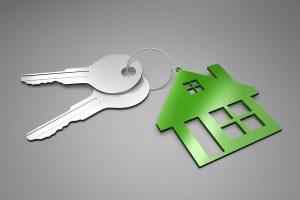
Considering An Early Mortgage Renewal
Why consider renewing your mortgage ahead of time? Well, one big reason is changes in interest rates. If rates drop, jumping on an early renewal

How to get a HELOC on an Investment Property in Canada
To get a Home Equity Line of Credit (HELOC) on an investment property, you need to follow these steps: 1. Know Your Finances: Estimate the

Expert Advice: Buying a House in Cash in Canada
In exploring the possibility of buying a house in cash in Canada, it’s essential to understand the various aspects that come into play. Here’s a

Average Down Payment for a House in Canada
According to the Canadian Real Estate Association, the average house price in Canada hit around $637,673 in August 2022. This means if you’re looking to
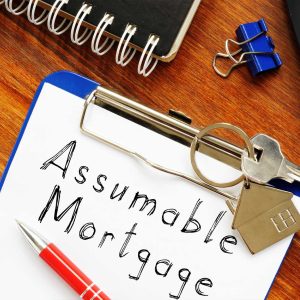
Assumable Mortgages: An In-Depth Look
Assumable mortgages are a unique financing alternative that could potentially save you thousands of dollars and simplify the home-buying process. But what exactly are they
